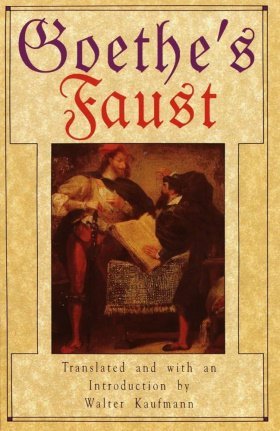Faust
Johann Wolfgang von Goethe
Published:1832
Source: proyect gutenberg
Translator: John Stuart Blackie
Editor: London macmillan and co.

This book has been downloaded from www.aliceandbooks.com. You can find many more public domain books in our website
translator’s dedication
An Goethe
Versuch ich’s mich so kühnlich hoch zu heben,
Zu den Gefilden reiner Lebensstrahlen?
Und wag’ ich’s frech, mit schwacher Hand zu malen
Was Dir nur ziemt, das buntbewegte Leben?
Wie soll der Kinderzunge lallend Streben
Aussprechen, was des Mannes Kraft gesungen?
Wie soll des Menschen Stimme wiedergeben,
Was aus der tiefen Götterbrust entsprungen?
O! wenn der Liebe ungestümer Drang
Mich trieb, dass ich das Heiligste entweihe,
Und zu berauschter, frecher Sünde zwang;
So schaue Du, aus der Verklärten Reihe,
Aus Himmelsharfen liebevollem Klang,
Und, wenn du mich nicht loben kannst, verzeihe!
contents
PREFACE.
PRELIMINARY.
DRAMATIS PERSONÆ.
DEDICATION.
PRELUDE AT THE THEATRE.
PROLOGUE IN HEAVEN.
FAUST.
ACT I.
Scene I, Scene II, Scene III.
ACT II.
Scene I, Scene II, Scene III, Scene IV, Scene V, Scene VI, Scene VII.
ACT III.
Scene I, Scene II, Scene III, Scene IV, Scene V, Scene VI, Scene VII, Scene VIII.
ACT IV.

























